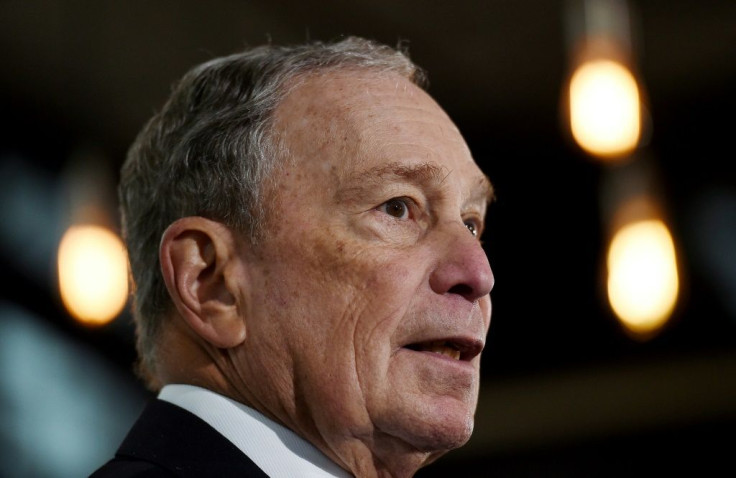Democratic Primary: Ahead Of Iowa Caucuses, Michael Bloomberg Unveils Tax Plan On The Wealthy

Former New York City Mayor and Democratic presidential candidate Michael Bloomberg announced his tax plan Saturday, which would target the wealthy and raise roughly $5 trillion over the next decade. The plan would implement a 5% surtax on incomes above $5 million and would finance Bloomberg’s proposals in areas such as education and climate change.
“The plan I am releasing today raises rates on wealthy individuals and corporations, closes loopholes, cracks down on tax avoidance, expands the estate tax, and reduces the tax advantages that investors have over workers,” Bloomberg said in a statement.
The plan would increase the top income personal tax bracket to 39.6% from 37%, which would reverse President Trump’s 2017 tax law. Bloomberg’s plan would also tax capital gains as ordinary income for those earning above $1 million. The corporate tax rate would also increase from 21% to 28%.
Bloomberg, who is worth more than $59 billion, would have to pay more in taxes under his plan.
“I will also pay more in taxes to make sure all Americans have the same opportunities I did,” Bloomberg said. “That’s only right.”
Bloomberg hasn’t always been supportive of tax increases on the wealthy. In 2012, he said at a press conference that taxing the rich is “about as dumb a policy as I can think of.”
But Bloomberg may have had to change his mind, as several of his Democratic competitors have ambitious tax proposals targeting the wealthy, with the goal of reducing income inequality.
Sen. Bernie Sanders, I-Vt., and Sen. Elizabeth Warren, D-Mass, two of the so-called “progressive” Democratic candidates, have suggested annual taxes on the extremely wealthy and have called for the corporate tax rate to increase to 35%. Both candidates have also criticized the role of billionaires in the American economy.
The Iowa caucuses will take place Monday. Bloomberg, who entered the Democratic primary late, is skipping Iowa and the other early Democratic contests.
© Copyright IBTimes 2025. All rights reserved.





















